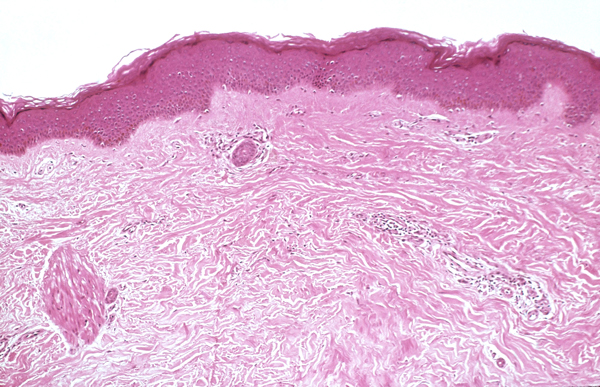The largest genetic analysis of an autoimmune disorder known as systemic sclerosis ever conducted in an Asian population has uncovered six new DNA markers for this rare tissue disease-a discovery that promises to improve treatment for patients worldwide1.
Also known as scleroderma, systemic sclerosis causes hardening of the skin and connective tissues, along with extensive damage to internal organs. Lacking a cure, it can lead to fatal complications in severe cases.
Now, a team led by Chikashi Terao of the RIKEN Center for Integrative Medical Sciences has analyzed genetic data from about 1,400 people in Japan with systemic sclerosis alongside data from more than 112,000 in Japan that do not suffer from the condition.
From this analysis, they identified six new DNA markers that increase a person’s risk of developing systemic sclerosis. These markers lie in genes that play a role in regulating the immune response. They reveal interactions between genetic factors that are unique to the Japanese population.
This discovery both underscores the common genetic framework of systemic sclerosis across different ethnicities and reveals that specific genetic factors may have a more pronounced effect or function differently in Asian populations.
For example, one of the markers-connected to a gene that encodes a protein receptor on immune cells-was also commonly found in combination with a variant of a regulatory gene that is critical for the development of immune cells.
“These genes are important for innate and adaptive immune response,” notes Terao. “A deeper understanding of their contributions to systemic sclerosis could lead to the discovery of novel drug targets.”
The findings could also help improve the accuracy of ‘polygenic risk scores’. These scores help predict an individual’s likelihood of developing a disease by aggregating the effects of numerous genetic variations. Currently, such risk assessments are challenging, especially considering the complexity and multi-organ nature of the disease.
By emphasizing particular DNA markers identified in their research, the RIKEN team enhanced the predictive accuracy of these scores. “Integrating these refined scores with other clinical parameters may be a good strategy to predict future disease development as well as disease outcomes,” says Yuki Ishikawa, a research scientist in Terao’s lab.
The markers may also help to distinguish between subtypes of systemic sclerosis, which the researchers noted exhibit distinct patterns of genetic architecture.
“We expect that our findings will stimulate further research into the individual responses of patients,” says Ishikawa.

